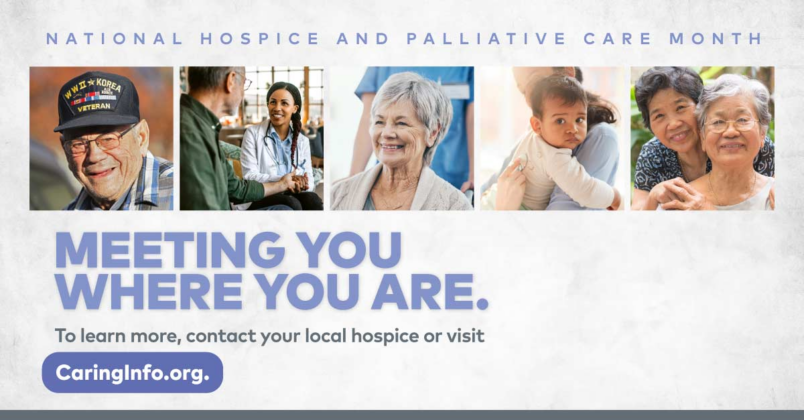National Hospice and Palliative Care Month is a time to not only recognize the healthcare professionals and volunteers who work in these fields, but also a time to educate the public about hospice and palliative care.
While there are similarities between hospice and palliative care, they are not interchangeable. Similarities include utilizing an interdisciplinary care team to deliver high quality, patient centered care to those with a serious illness; a focus on pain and symptom management for improved quality of life; and addressing the physical, emotional, spiritual, and social needs of the patient and family.
Where they differ is when and for how long the care can be provided. Palliative care is appropriate from the time a person receives a serious illness diagnosis, and throughout the disease course and treatment of the disease. The earlier one starts working with a palliative care team along side your other doctors, the more benefit one receives from this type of care including communication about what to expect in the future to help ensure the care matches the goals of the patient and family.
Hospice care is designed to be provided at end-of-life, meaning the serious illness is not curable or the person has decided to discontinue curative treatment. Generally, a physician signs a document stating that if the disease runs it typical course, the person will die within 6 months. Like palliative care, the earlier one enrolls in hospice, the more benefit is received including opportunity to prepare for death and bereavement support.
Perhaps this month, you and your organization can provide education to your communities about these two separate but equally important specialty practices. Need some ideas: send out a press release, do a Health Beat or Medical Minute news story, write an article for your paper, have an open house, get a mayoral proclamation.
To all the team members: physicians, nurse practitioners, nurses, social workers, chaplains, and volunteers, THANK YOU for all you do to support those patients living with serious illness and those who are at the end of their illness journey. Your expertise, commitment and compassion are what make the care you provide so crucial.




